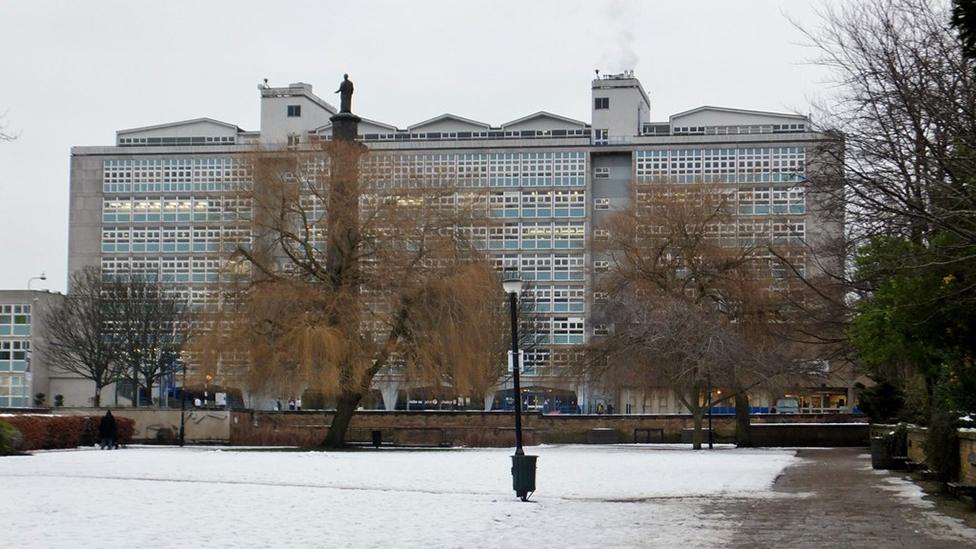Hull city centre waste-burning heating plan backed by council
- Published

Hull College is one of the buildings that will be connected to the heating network
Plans for a £26m project that would use energy from burning waste to heat buildings have been given the go-ahead.
The Hull District Heat Network would pump hot water through pipes to buildings in the city centre.
The city council's cabinet approved the scheme last week and a company has been formed to manage the project.
Councillor Jack Haines said it would help tackle climate change and keep energy costs down in the long term following price hikes since last year.
According to the Local Democracy Reporting Service, Mr Haines said the project had great potential.
"The council is absolutely committed to ensuring it remains a leading authority when it comes to tackling climate change," he said.
"We are aware first-hand of the effects it can have on our city and it is important we sustain our long-term future, both environmentally and financially."
The council said it could reduce CO2 emissions by up to 126,000 tonnes a year.
Half of the funding would come from the government's Green Heat Network Fund for low-carbon energy projects.
According to the government website, "the investment will deliver 22 GWh heat generated from Hull and East Riding domestic and commercial waste to 46 public and private-sector customers".

The heating network will be connected to the Albion Square development which is under construction
Buildings benefiting from the heating would include the Guildhall, Hull College, Hull New Theatre as well as private developments, such as Albion Square.
Similar systems are in place in London, Glasgow, Nottingham, Manchester and Sheffield, as well as around Europe.
If planning permission is granted, work is expected to start next year with the first part of the network operational by 2025.

Follow BBC East Yorkshire and Lincolnshire on Facebook, external, X (formerly Twitter), external, and Instagram, external. Send your story ideas to yorkslincs.news@bbc.co.uk, external
- Published5 February 2023

- Published26 September 2022
